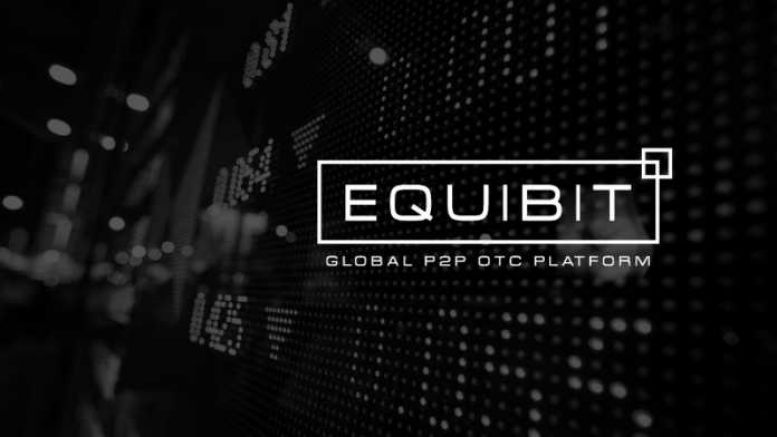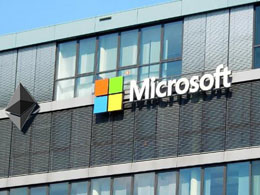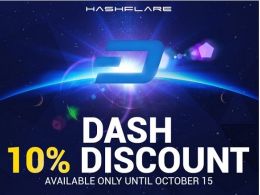
Blockchain-Backed Platform Offers OTC Securities on the Cloud
Equibit’s system will allow for peer-to-peer trading platform that is faster, more secure, and provides transparent market activity.
Toronto-based Equibit Development Corporation (EDC) is looking to change the way over-the-counter (OTC) markets operate, and decentralized technology has a key role to play.
The company has developed a blockchain-based platform capable of providing a peer-to-peer, holistic OTC platform that can be designed to encompass and streamline the entire investor-issuer relationship from start to finish; something that has potential to revolutionize the existing OTC markets system.
Introducing a host of innovative features, Equibit’s platform offers: increased data security via blockchain encryption; transparency of market information; efficiency by dismissing the need for third parties like transfer agents and central depositories; and easy shareholder communication.
According to Chris Horlacher, CEO at EDC, Equibit’s blockchain-based platform is a decentralized equity registration, clearing and settlement platform. Thus it can effectively act as an OTC marketplace, greatly increasing accessibility while giving investors control over their own transactions.
It was in his role as Chief Financial Officer, during Euro Pacific Canada’s startup phase (now Echelon Wealth Partners), that Horlacher gained an intimate understanding of all of the [cumbersome] layers that make up the securities industry.
In the current marketplace, OTC investors must seek out dealers to act on their behalf, explained Horlacher, whose company collectively holds executive experience in the financial markets, computer science and cryptocurrencies.
“There are so many intermediaries and risks that most people, including investment professionals, are completely unaware of,” said Horlacher. “With blockchain technologies beginning to gain popularity there is a need to adapt this to the securities industry. Equibit offers visibility into the market and network that simply doesn’t exist right now.”
Over-the-counter markets have long performed in the same way, operating on a basis that participants trust intermediaries, or dealers, to create a fair market without access to data on completed trades, earnings distributions, risk exposure, or visibility to future liquidity.
The OTC system also involves inefficient transfer agents, according to Horlacher. They act as middlemen in clearing transactions and are heavily relied upon to service investors but can pose unnecessary cost and risk to investors.
Furthermore, a lack of transparency and disclosure within markets has created an opportunity for manipulation and can even lead to extreme financial stress in the forms of liquidity shortages, volatile pricing, and overall systemic risk. The 2008-09 global financial crisis is a reminder of what can happen when markets operate in a siloed environment.
Shortly after the financial crisis, associates of the New York Federal Reserve published a paper citing how
“the complexity and limited transparency of the market reinforced the potential for excessive risk-taking, as regulators did not have a clear view into how OTC derivatives were being used.”
The paper went on to state that:
“deficiencies in the market design and infrastructure allowed for misuse of these instruments,” and proposed “strengthening the OTC derivatives market infrastructure by increasing transparency.”
Michael Moro, CEO of Genesis Global Trading, an institutional trading firm for digital currency, said that a platform such as EDC’s could make OTC cryptocurrency trading easier.
“One issue I know we ran into a few times,” said Moro in reflection on his experience with creating OTC products, “was the inability to locate the assets that a counterparty thought they owned, but didn’t in actuality. Creating a trustless blockchain environment would certainly create efficiencies there in terms of being able to ‘know’ that someone has the assets they claim to own.”
Blockchain technology lifts the veil, opening accessibility to information for the user. Data on completed trades and earnings distributions, for example, will be stored publicly and can be examined at any time by anyone connected to the network, said Horlacher.
While the OTC markets are not as publicly discussed as the commonly known exchanges like the NYSE, NASDAQ and TSX, OTC markets have grown exponentially in recent years. According to OTC Markets Group, a U.S. financial market that provides price and liquidity information for almost 10,000 OTC securities, volume in trading stretches into the billions of dollars, potentially trillions. Though these numbers are not readily available or clearly defined.
Nevertheless, the securities offered on OTC markets far exceeds what is available on public exchanges.
By improving on the existing OTC model, Equibit hopes to lessen the need for regulation currently required for the various layers of the securities industry and dramatically increase transaction speed in lieu of the advancements in communications, security, and trust that blockchain technology permits.
“The Equibit blockchain will also deliver a new kind of blockchain encryption that can create equity units near impossible to counterfeit and an incorruptible chain of custody,” said Horlacher. “This cures many of the transparency problems currently plaguing the OTC securities industry; particularly when it comes to bearer shares.”
Further bolstering its security and the transparency of the peer-to-peer OTC platform are the use of the Web of Trust protocol, effectively creating what Horlacher calls Trading Passports.
Trading Passports make it easy for independent parties to certify the status of accredited investors.
“Startups can also signal to observers and potential investors that they’ve been duly organized as well as compliant with regional securities laws,” reads the company’s official site.
“Equibit does not remove the obligation of issuing firms to obey their regional security laws,” Horlacher explained. “However, it’s far easier for companies to remain in compliance using our system than it is under the traditional processes.”
Horlacher added:
With Equibit’s Trading Passports, issuers can designate pools of pre-approved accredited investors, either directly or through intermediaries called Accreditors, that will be able to trade their shares and never have to worry about them falling into the wrong hands. There are no more lengthy questionnaires and due diligence needed, thus providing far more liquidity and safety to issuers. So long as an investor can be proven to belong to a trusted group, the transaction will be verified. Gone are the days where issuers had to be involved in every trade of their shares.
He added, moving away from central authority based systems and embracing distributed trust also removes the risk of a single point of failure.
EDC plans to launch a private beta testing phase of its decentralized equity registration, clearing and settlement platform soon, and looks to open to investors in early 2017.
Visit equibit.org for more information: http://equibit.org/
Related News





